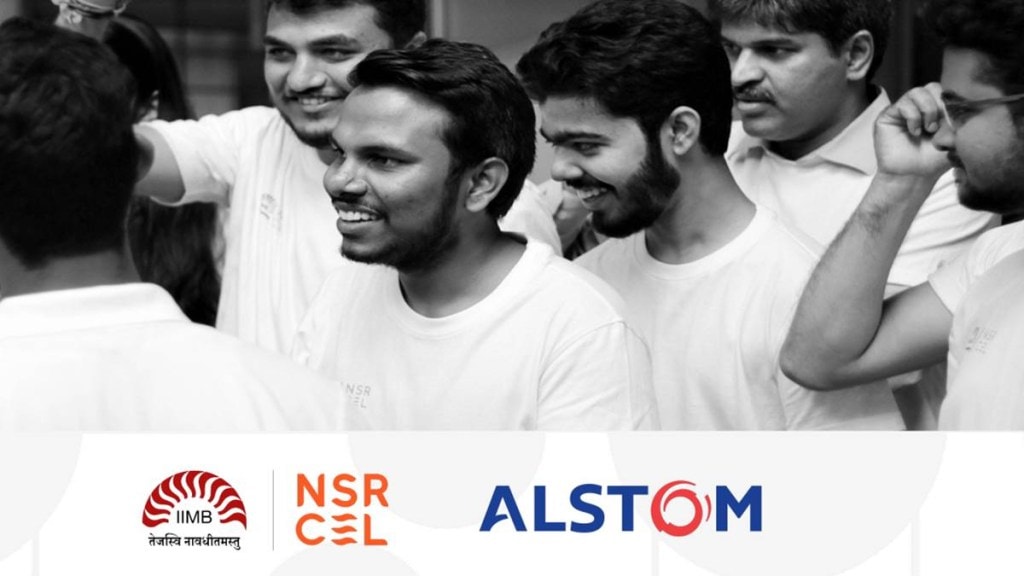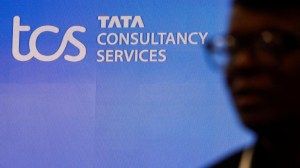In an exclusive interview with Financial Express Online, Nihal Choudyal, Senior Program Manager at NSRCEL IIM Bangalore and Sapna Bhawnani VP-Communications & CSR, Alstom Asia-Pacific talks about the green innovation, sustainable mobility and various innovative incubation programmes. Excerpt:

Nihal Choudyal, Senior Program Manager at NSRCEL IIM Bangalore talks about sustainable mobility start-ups, green manufacturing and mobility infrastructure.
Q: What specific criteria does NSRCEL consider when selecting startups for its Sustainability Incubation Programme, particularly in terms of their potential to promote sustainability and scale in the clean energy ecosystem?
Ans: The criteria for the selection of mobility start-ups encompasses a broad evaluation framework, primarily focusing on ventures aligning with three overarching domains: energy, environment, and infrastructure. Following initial alignment, our assessment delves into the potential of the venture, considering two key dimensions. Firstly, at the founder level, we scrutinize the willingness and capacity of the founder to drive the venture forward. Secondly, at the venture level, we employ a range of metrics to gauge various aspects, including but not limited to product-market fit, problem-solution fit, the viability of the business model adopted by the venture, market saturation, and the market’s response to the venture’s approach, among others.
Q: How does the partnership with ALSTOM enhance the opportunities available to start-ups participating in the Sustainability Incubation Programme? What unique resources or expertise does ALSTOM bring to the table?
Ans: The program is designed to assist sustainable mobility start-ups in their early revenue stages, focusing on innovations in various areas such as green manufacturing, mobility infrastructure, energy and renewable energy, climate technology, alternative fuels, and vehicle technology. Alstom, a global leader in smart and sustainable mobility, and NSRCEL, the start-up hub at IIM Bangalore, are collaborating to implement the Sustainability Incubation Programme. This initiative aims to support start-ups demonstrating the potential to innovate, implement, and create social, financial, and environmental impact, aligning with SDG goals.
The program will facilitate the development, scale-up, and market penetration of technology solutions that replace high-emitting, energy-hungry, and non-recyclable incumbents. Alstom is deeply invested in fostering innovation and sustainability, evident in their support for startups through grants and network connections. By identifying ventures with high potential for impact, Alstom aims to amplify their efforts and contribute to meaningful change. Beyond financial support, Alstom offers valuable insights drawn from their expertise and understanding of the sector. Sapna, a sustainability champion within Alstom, plays a pivotal role in championing these initiatives, both within the company and for the supported ventures, further enhancing their collective impact.
Q: Could you provide examples of some successful start-ups that have been supported by NSRCEL in the Sustainability Incubation Programme?
Newtral AI a startup that has built an AI-enabled sustainability platform, initially faced challenges in acquiring customers upon integration with our platform. However, following guidance from one of our esteemed anchor mentors, they successfully implemented a freemium subscription model, leading to the onboarding of 110 non-paying customers, with the potential to convert them into paying clientele. This strategic shift catalyzed their customer growth, resulting in an expansion of their user base. Additionally, they enhanced their organizational structure, increased their team size, and refined their strategic communications and value proposition through mentoring sessions facilitated by NSRCEL. Furthermore, their revenue trajectory showed substantial improvement, reflecting the effectiveness of their strategic decisions.
With another startup – CogniTensor, our engagement spanned various areas of assistance. Firstly, we facilitated connections and aided in product development, including gathering customer feedback and refining their product through introductions to industry representatives. Secondly, we offered guidance on marketing strategies and outreach efforts, collaborating with mentors to define narratives and identify target customer segments. Thirdly, we provided support in valuation, funding, and business planning, helping them finalize their valuation, determine funding needs, and outline a comprehensive business plan. Lastly, we assisted in navigating the intricacies of patenting, ensuring the protection of their intellectual property rights through collaborations with specialized firms. These areas constituted the focal points of our engagement with CogniTensor, aimed at fostering their growth and success.
Q: In what ways does NSRCEL ensure that start-ups in its Sustainability Incubation Programme adhere to global sustainability standards? Are there specific benchmarks or guidelines that these ventures are expected to meet?
Ans: There exist two perspectives concerning sustainability standards. Firstly, in numerous instances, these ventures operate within domains where compliance, standards, and policy are still evolving, thereby contributing to the definition of benchmarks. Secondly, our program aims to implement interventions, such as Life Cycle Analysis (LCA), by leveraging both knowledge and expertise to assess the specific environmental impact of products throughout their life cycle. This involves delineating a value chain, identifying one’s position within it, and evaluating contributions towards objectives like carbon neutrality or other sustainability goals.
Q: Can you discuss any challenges or obstacles that startups focused on electric vehicles, battery recycling, charging infrastructure, and assistive technology commonly face in India’s clean energy ecosystem?
Ans: Startups in India’s clean energy sector, focusing on electric vehicles (EVs), battery recycling, charging infrastructure, and assistive technology, face numerous challenges. These include the lack of charging infrastructure hindering EV adoption, difficulties in battery technology advancement and cost reduction, and regulatory uncertainties affecting investment decisions. Additionally, consumer adoption remains slow due to range anxiety and high upfront costs, while establishing a robust supply chain poses logistical challenges. Furthermore, attracting skilled talent and securing financing are daunting tasks. However, organizations like NSRCEL play a vital role in supporting these startups. Through mentorship programs, access to resources, and networking opportunities, NSRCEL helps startups navigate regulatory complexities, develop innovative solutions, and connect with potential investors and industry partners. By fostering collaboration and providing guidance, NSRCEL contributes to the growth and success of startups in India’s clean energy ecosystem.

Sapna Bhawnani VP-Communications & CSR, Alstom Asia-Pacific talks about the advancing sustainability in rail and other infrastructure programmes.
Q: Collaboration between NSRCEL and ALSTOM seems crucial in supporting green innovations. Can you shed light on the nature of this partnership?
Ans: As a leader in sustainable mobility, Alstom’s vision is to fast track the development and adoption of green mobility solutions. Transport remains one of the largest emitters of carbon and even though rail is the cleanest mode of transport, its share in transportation modes as compared to road or air remain low. When Alstom was evaluating the areas where we wanted to create impact in India in terms of its social investments, we agreed to focus a substantial part of our efforts on solving some of the challenges that exist in the adoption of public transport. Safety, last-mile connectivity, air and noise pollution, lack of passenger information are some of these areas that research threw up.
Alstom firmly believes that innovation and expanding the eco-system of partners working on these issues is the best way to support the development of needed solutions and hence partnerships with incubation partners like IIM Bangalore and NSRCEL are core to our CSR strategy. India today has the third largest start up ecosystem in the world and this program is supporting us in finding those exciting ventures that share our vision of sustainable mobility. Our first couple of cohorts have already brought forward some very interesting startups.
Q: Looking ahead, what are the long-term goals of ALSTOM? What is your opinion on India’s broader efforts towards environmental sustainability and clean energy adoption?
Ans: Alstom is deeply committed to advancing sustainability in rail and is evaluating its entire value chain from production to the supply chain to advance its progress and reduce its environmental impact. Our sustainability strategy is evolving to encompass growing challenges, which will be reflected in the Alstom 2027 strategic plan. An additional pillar, Resources, will be added to the sustainability strategy, with a focus on our priorities and actions in Ecodesign and Circularity, previously incorporated within the decarbonization pillar.
India has made significant strides in recent years towards becoming more sustainable and adopting clean energy. I am particularly enthused by the various initiatives to encourage the use of renewable energy, such as offering incentives for clean energy projects, promoting energy efficiency measures, and launching various clean energy programs. Additionally, India has pledged to reduce its greenhouse gas emissions intensity by 33-35% below 2005 levels by 2030, under the Paris Climate Agreement. While progress is being made, there are still challenges to overcome, such as increasing public awareness of the importance of sustainability and addressing infrastructure limitations. Corporate commitment to achieving balance between planet, people and profit priorities will remain integral to India advancing on its SDG goals. Overall, India is taking positive steps towards a more sustainable future.








